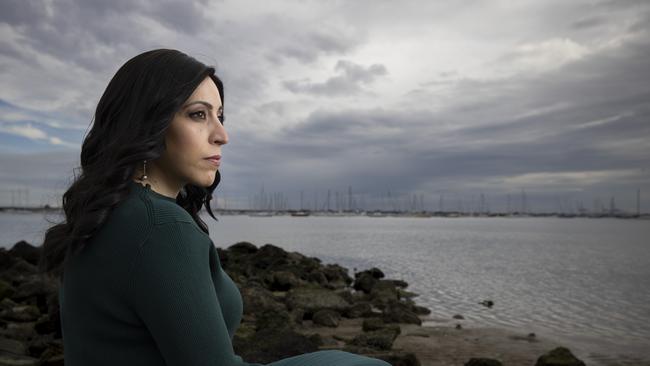At 3pm each Monday, the time of the verdict, Nicole Meyer takes a video to record her feelings.
Big brown eyes stare sadly at the camera, her voice all but a whisper, as she bares her heart about what unfolded in Melbourne’s County Court on Monday, April 3.
“Ten weeks since the verdict came out, 10 weeks of feeling my heart begin to break at 3pm every Monday, the knowledge of the pain of that hour,” she says in one.
“The pain that it brings into me spreads throughout my body … it’s so hard for me to handle the ‘not guilty’.
“My mind refuses to go there. I feel like I need to shout my truth off the rooftops and make the jury believe that what happened to me happened. And yet I don’t get another chance,” she says as her voice breaks.
“I don’t get another chance to get justice. I don’t know how I’m going to move on from this, I don’t know how to accept it, I don’t know how to feel that it’s not my fault.”
These heart-wrenching videos are a part of Nicole’s attempts to process what to her, and to so many Australians, was unfathomable.

On April 3, a jury, after deliberating for 32 hours over nine days, convicted Malka Leifer, the former principal of the ultra-Orthodox Adass Israel School in Melbourne’s Elsternwick, of 18 counts of sexual abuse.
On Thursday, she was jailed for 15 years, and must serve 11-and-a-half years befor she is eligible for parole.
Leifer’s conviction was the triumphant culmination of an international campaign by three sisters – Nicole, Dassi Erlich and Elly Sapper – to extradite their former principal and teacher from Israel and bring her to trial in Australia.
Their quest for justice became a 13-year saga that spanned from here to Israel and involved prime ministers, extraditions, appeals, political corruption, private investigators and subterfuge.
But as the three sisters held hands in the court listening to the jury’s verdict, there was a terrible sting in the tail.
The 18 guilty verdicts against Leifer related only to the abuse of Dassi and Elly. For each of the five charges of rape and sexual abuse relating to Nicole, the jury found Leifer not guilty.
The three sisters, so united in their marathon quest for justice, suddenly found themselves landing with a thud on different sides of the law.
Nicole had fallen through the cracks, her legacy separated forever from her sisters by a jury verdict that had to be respected even if it didn’t pass the pub test given what Leifer did to Dassi and Elly.
“I keep hearing ‘not guilty’ looping around in my head,” Nicole says. “I think the verdict has changed everything for me. It’s a very different journey to the one I expected.”
Verdict day
The morning of the verdict was a time of hope for the sisters, with an upbeat Nicole taking a video of herself in the car on the way to the court saying they were all “utterly ready for whatever is to come and let’s hope it’s today … onwards and upwards”.
As the jury prepared to deliver their verdict after the six-week trial, the 56-year-old Leifer sat alone and stone-faced in the back of the court wearing a black headdress as the three sisters linked hands.
The first five charges were all related to Nicole and included four counts of rape and one of indecent assault by Leifer between 2003 and 2006 when Nicole was a student and then a teacher at the school.
But as each charge was read out, the words “not guilty” rang through the courtroom.
“My heart dropped,” Nicole recalls. “I could have crumpled to the floor and literally not been able to move or I could stand up and be strong with my sisters.”
Nicole tried to stay strong as she squeezed her sisters’ hands harder and fought back tears. But then, moments later, there was also huge relief.
On 18 of the remaining 22 charges – sexual penetration and indecent assault all relating to her sisters – the jury declared Leifer guilty.
Their former principal, who had been accused of so many crimes against the sisters for so long and who had tried to evade Australian courts for years after being sent by her school board from Melbourne to Israel in 2008, was finally a convicted sex offender.
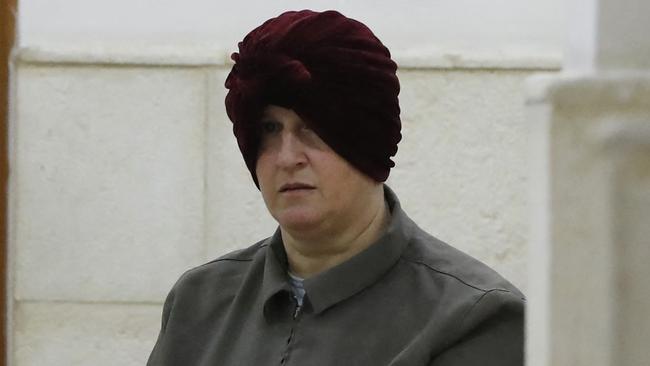
As her feelings bounced between relief and pain, Nicole glared at Leifer in the dock.
“I turned around and was like ‘I don’t care what the jury or anyone thinks, I know what you did to me and I want to meet your eye and show you that you haven’t broken me’,” she says.
“She refused to look at me and that’s fine because she knew I was looking at her.”
After Leifer was led away, the sisters left the court and found themselves in an elevator with barristers and lawyers. “It was the lift ride from hell, I’m about to break down and you’re surrounded by people,” Nicole recalls.
The sisters went into a room where she recalls one of the prosecutors giving Nicole words of encouragement.
“She said something like, ‘If you hadn’t done it then your sisters would not have been able to do it, it was the three of you together’. I said ‘OK, thank you’.”
Then the sisters were left alone for the first time as the media pack waited outside the court.
“I think all of us were in shock,” Nicole says. “Elly was crying and I was standing there telling them ‘It’s gonna be OK guys, we got guilty, It’s OK, I’m OK. We got this’.
“But I think they were heartbroken for me. It was such an emotional moment after so many years. Because I didn’t get guilty, it wasn’t a joint feeling of celebration that we could enjoy together. It was heartbreak. It was bittersweet. It was too many things at once.”
Minutes later the sisters fronted the media outside the court. Holding hands with them, Nicole said: “Yes it’s bittersweet, but she is guilty, I believe in myself. My sisters believe in me.”
Nicole says she held herself together for the rest of the afternoon as the sisters checked into a hotel in Southbank to spend the night together. But then about 8.30pm, when Nicole got a call from her therapist, who had helped guide her through so much, it became too much.
“I sat on the floor in the hotel room and broke down for about an hour,” she recalls. “It was the first moment since the verdict that I allowed myself to actually feel pain.”
Coming to terms
Ten weeks later, the day after Nicole made her weekly Monday video, she is sitting in her apartment in Melbourne’s Balaclava wearing the same black and white headband she wore in the video.
In contrast to that clip, she is smiling and relatively upbeat, reflecting a journey of emotional peaks and troughs since the court’s verdict.
“I think I was in a state of denial for the first five weeks, it took me a long time to accept it,” she says. “Getting ‘not guilty’ means I will never quite get that closure and I have to work even harder to just move on.”
She says she has been buoyed by the support of others, including sexual assault victims who tell her she is an inspiration.
But she says she also feels that she let people down because she wanted to be an example to sex victims in the ultra-Orthodox community “so that people who are ultra-Orthodox feel OK to come out, go to the police and have a chance at justice”.
Despite the obvious pain that she still feels about the verdict, she says she doesn’t regret anything she has done since she and her sisters first gave police statements about Leifer in 2011.
“I don’t regret any part of the journey,” she says. “I’m working not to let (my verdict) discredit everything we’ve done because I feel like we’ve done so much.”
Although the not guilty verdict means Nicole cannot read out a victim impact statement in court, she plans to write one anyway and read an abbreviated version outside the court at Wednesday’s plea hearing.
Dassi and Elly are also still coming to terms with the fate that has befallen the sister who fought by their side during their long campaign to bring Leifer from Israel to an Australian court.
“I feel a profound sense of injustice that my sister was denied the validation and closure she deserved,” Dassi says. “The pain of witnessing my sister’s truth and courage dismissed, failed by a system that had already caused her so much harm had left me unable to look back at our shared journey for justice without frustration, anger and sorrow. It breaks my heart to witness her suffering and the weight of pain she carries having to come to terms with this unfairness.”
So what happened in the courtroom that saw the jury dismiss Leifer charges relating to Nicole while upholding those relating to Dassi and Elly?
While only the jury knows the true reasons for their verdicts, Leifer’s defence team, led by barrister Ian Hill, argued that the charges relating to all three sisters were “erroneous, imagined and/or fabricated”.
Hill sought to discredit the stories of Dassi and Elly story, but he zeroed in especially on Nicole’s evidence during his closing argument.
The charges relating to Nicole against Leifer included one of indecent assault in 2003 and four counts of rape in 2006, twice in offices at the Israel Adass School and twice at a school camp in Victoria’s central highlands.
Hill focused on what the defence said was a key inconsistency in Nicole’s evidence against Leifer. When Nicole gave her first statement to police back in 2011, her allegations of sexual abuse against Leifer did not mention digital penetration. Yet when Nicole gave a second police statement in March 2021, she said Leifer had digitally penetrated her, a claim she had also made to a psychiatrist in 2014 and to a psychologist in 2017.
When quizzed about the two police statements in court, Nicole said she was traumatised when she gave her 2011 statement and that it was only through therapy in the years that followed that she could articulate the full extent of her alleged abuse.
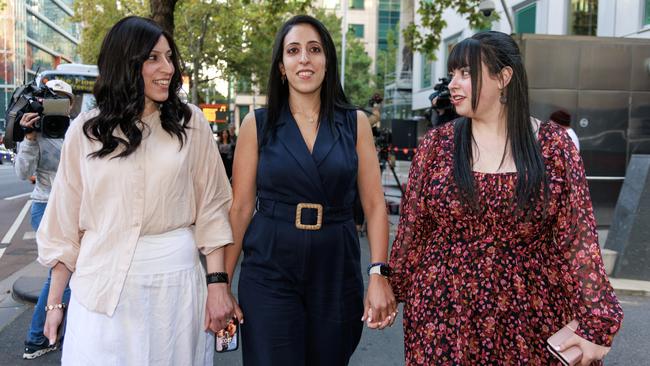
“So the trauma caused you in that first statement to say nothing about digital penetration?’ Hill asked Nicole in cross-examination
“On the day I gave my first statement I found out I was pregnant with my youngest. That is the only way I remember that day as clearly as I do,” Nicole replied. “It was extremely difficult for me to talk (about) anything for the first time.”
Hill asked: “But 10 years later you were able to give a statement to the police for the first time about it?
Nicole replied: “Correct, because I had been to therapy and I’m working on processing some of that trauma.”
The defence also criticised Nicole’s recollection of various dates of sexual incidents and the court focused on alleged abuse by Leifer only from 2003 to 2006, rather than what Nicole says was a full 6½ years of abuse by her former principal.
“The cross-examination was brutal,” Nicole recalls. “He just tore apart and questioned every single detail of the abuse in a way that almost made you feel that the abuse didn’t happen the way you know it did.”
She says the defence “mocked” her for saying that her full recollection of what happened only came to her after her 2011 police statement.
“Unfortunately that’s how abuse works: the brain blocks parts and in 2011 when I made that statement I wasn’t mentally able to handle being raped,” she says.
Prosecutors said her inability to fully process what happened early on was probably helped by her sheltered upbringing in the ultra-Orthodox Adass community where sex was a taboo topic and sex education was non-existent. It was this complete ignorance of acceptable boundaries that made Nicole and her sisters, in the world of prosecutor Justin Lewis, “ripe for the picking”.
Nicole believes judges in sexual assault cases need to help educate jurors about the complex nature of trauma and memory.
“Judges need to give better and more empathetic instructions to juries to help them understand that trauma is not linear and trauma can evolve and be more deeply understood by someone over time,” she says.
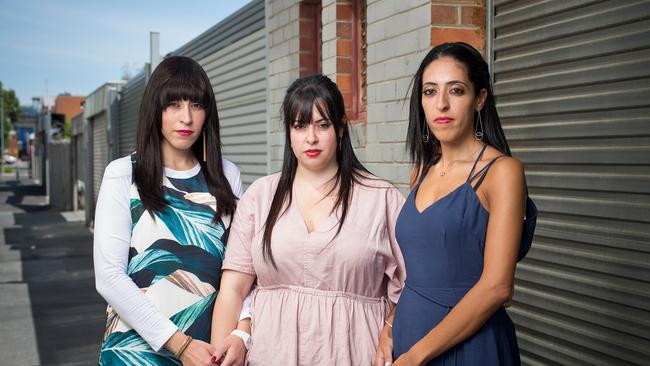
She says juries often don’t get to hear the full context of abuse. She alleges Leifer affected every area of her life, socially, physically and emotionally.
Nicole says that after the cross-examination she felt a “crippling self-doubt” that she had failed to properly explain the alleged abuse by Leifer as clearly and persuasively as did Dassi and Elly.
“It is a feeling that I have let myself down,” Nicole says. “I’ve worked so hard to get justice but maybe I wanted it too much and that’s why I didn’t get it.”
She says a member of the prosecution team told her they were sorry that they couldn’t persuade the jury beyond reasonable doubt and that Nicole should not blame herself for the outcome.
“But of course I’m going to take some of the blame because I was on the stand and because I am hard on myself,” she says.
An Orthodox life
Nicole was the third of seven children born to parents in the small ultra-Orthodox Adass Jewish community of about 2000 people that mostly lives within a few blocks around East St Kilda in southeast Melbourne.
Raised with neither television nor internet, they had little knowledge of the world outside their highly religious community. Their mother was abusive and the children, especially the three sisters, relied heavily on each other growing up.
“I remember Nicole’s determination, in whatever way she could, to shield her youngest siblings from harm,” Dassi recalls.
Nicole alleged that Leifer, a school principal who at that time was highly respected within the Adass community, began to sexually abuse her in 2003, when she was in year 10 and that the abuse continued until 2007, just a year before Leifer was spirited out of the country.
It took some time before the three sisters learned that each was being abused by Leifer and in 2011 they each made individual statements to the police.
Three years later, Victoria Police charged Leifer with 74 counts of child sex abuse and she was placed under house arrest in Israel. But for years Leifer avoided extradition to Australia by feigning mental illness to delay proceedings, a process that was helped by Israel’s then deputy health minister Yaakov Litzman, who pressured doctors to declare Leifer mentally unfit for trial.
The tide began to turn only in 2017 when one of Nicole’s classmate’s sisters took a photo of Leifer, who was supposed to be mentally unfit to be extradited, standing casually in a street in Israel.
“I sent that picture to Dassi and it went viral,” Nicole recalls.
Nicole, Dassi and Elly, backed by supporters such as former Victorian premier Ted Baillieu, launched a campaign in Australia and Israel to bring Leifer back.
When private investigators later filmed Leifer doing normal things such as shopping, the issue became a thorn in the Australia-Israel relationship.
Nicole and her sisters visited Israel four times as part of their campaign to bring Leifer back, with then prime minister Malcolm Turnbull calling on his counterpart Benjamin Netanyahu to help extradite Leifer.
It was not until January 2021, almost 13 years after her arrival in Israel, that Leifer was finally extradited back to Melbourne to face trial.
‘Deplorable’ conduct
Despite Nicole’s grief about the failure of her own charges against Leifer, she says some positive things have happened since the trial.
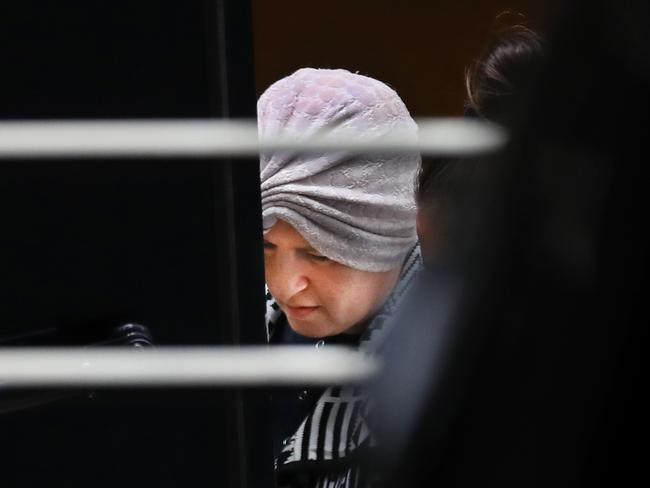
The first was that another of Leifer’s alleged victims, not related to the sisters, launched a civil case against the school. That case was settled out of court, but it gave Nicole hope that other alleged victims of Leifer might feel that they can come forward.
“I was relieved that there was one more person because it’s been Dassi, Elly and I since 2011 with no one else,” she says.
The other development was that Victoria Police backflipped on a previous decision and moved to reopen its investigation into the circumstances of Leifer’s sudden departure from Australia in March 2008.
The investigation is focusing on a meeting of the school board and community leaders at the house of the late businessman Izzy Herzog on March 5, 2008.
The board had become aware of at least eight separate allegations of abuse involving Leifer and girls at the school. In attendance was then school board president Yitzhok Benedikt, then school board member Meir Ernst, the late barrister Norman Rosenbaum, psychologist Vicki Gordon and a teacher Sharon Bromberg.
The group put Leifer on speakerphone and put the allegations to her. Leifer was then told she would be stood down but it was agreed that, rather than report her to police, the principal should be spirited out of the country.
Dassi Ernst, the wife of school board member Meir, asked a travel agent to open at 10 o’clock that night to book a plane ticket to Israel. Less than four hours later – at 1.20am – Leifer and four of her children flew to Israel. The school paid for her ticket.
In his 2016 judgment in a civil case against the school, then Supreme Court judge Jack Rush described the board’s conduct as “deplorable” and said it was “motivated by a desire to conceal her wrongdoing and confine and isolate the conduct and its consequences to within the Adass community”.
Dassi says the actions of the board in facilitating Leifer’s escape “not only betrayed the pursuit of justice and caused significant delays, it also perpetuated the anguish we were forced to endure and hindered our path to healing”.
Nicole says she doesn’t want anyone to go to jail over the incident, but she does want accountability.
“I do want an open, transparent authentic apology because it caused us years of additional trauma and fighting for justice,” she says.
Unlike Dassi and Elly, Nicole has remained in the ultra-Orthodox community along with her husband and her four children aged 11 to 16.
But she is concerned that many in that community are still more willing to defend their collective reputation than support victims of sexual abuse.
Nicole remembers the deafening silence within the Adass community when she and her sisters first went public with the allegations.
“That silence to me indicated a huge lack of support so I withdrew from social engagements within the community,” she says.
Even last month, when the unnamed victim settled the civil suit against the Adass Israel School, several protesters in cars turned up outside the victim’s home unhappy that she had launched the claim.
“It was very confronting for me to see that and realise that things have not changed much at all,” Nicole says.
She says the school itself, despite issuing an apology to the sisters after the verdict, never apologised to the sisters at any stage previously during their 15-year quest for justice.
Nicole says she now wants to focus on getting her life back on track. She plans to study law next year and hopes to one day become a criminal prosecutor as well as helping victims of sexual abuse.
But mostly she just wants to move beyond the shadow of Leifer and the verdict.
“I am 37 and she has been in my life since I was 16; that’s more than half my life,” she says.
“I wanted so badly to move past having Leifer in my life but it is a lot harder now. I have to figure out a life without her in it. That is the hardest part for me.
“But I know my truth and I’m grateful for the support from those who believe me.”

